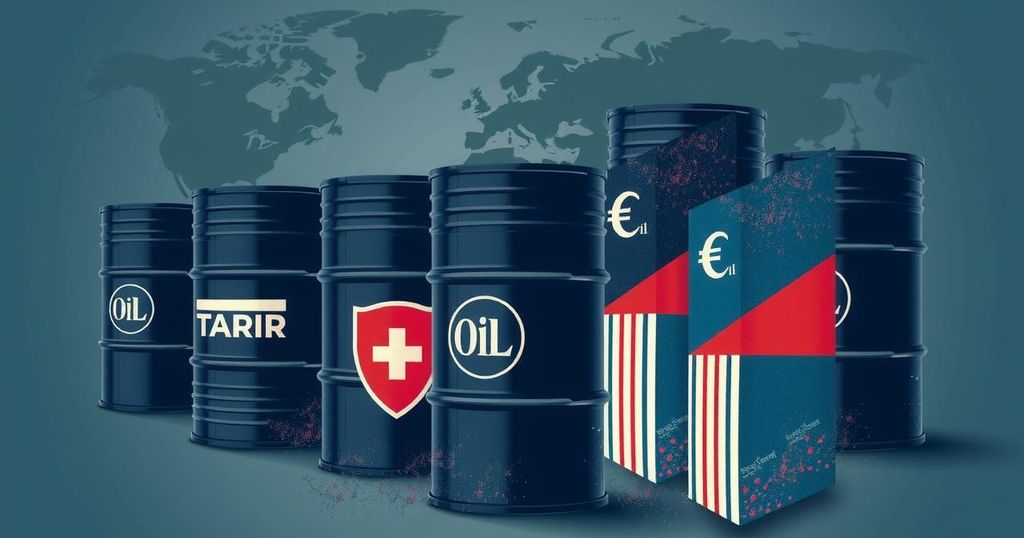Trump Threatens Russia with Secondary Tariffs Amid Ukraine Negotiations

President Trump announced the possibility of imposing secondary tariffs on Russia’s oil if peace negotiations regarding Ukraine fail. He expressed frustration at President Putin’s comments about Ukraine’s leadership and linked tariffs to broader foreign policy strategies, including potential actions against Iran.
In an assertive declaration, President Trump emphasized his readiness to impose secondary tariffs on nations purchasing oil from Russia, should they hinder peace negotiations concerning Ukraine. Trump’s statements, acknowledged during an interview on “Meet the Press,” underscore his frustration towards the ongoing negotiations, specifically addressing actions he perceives as obstructive. He indicated potential tariffs ranging from 25 to 50 percent could be enacted “at any moment,” following discussions with President Putin.
Mr. Trump’s strong condemnation of President Putin marked a notable shift in his approach, especially given the historical context of his previous support for the Russian leader despite the international backlash following Russia’s invasion of Ukraine. He has not directly acknowledged Russia’s role in initiating the conflict while mischaracterizing Ukrainian President Zelensky’s stance. His proposed use of tariffs appears to signal a pivot towards leveraging economic measures to achieve desired political outcomes.
Moreover, Trump expressed his growing displeasure with Putin’s comments questioning Zelensky’s legitimacy, stating such remarks could derail potential negotiations. He noted that discussions about new leadership in Ukraine could complicate efforts for lasting peace, highlighting the fragility of the current ceasefire agreement, which remains tenuous amid ongoing aggressive posturing from both sides.
In discussing Iran, Trump reiterated the potential for military action should diplomatic efforts fail. He asserted that, without a decisive agreement to prevent nuclear development, adversarial measures would escalate significantly. Earlier, he reached out to Iran’s supreme leader, proposing direct negotiations and displaying a preference for diplomatic resolutions over military engagement.
Trump’s introduction of secondary tariffs targeting oil transactions with Russia and Iran reflects his broader strategy of applying economic pressure to compel policy alignment from various nations. His recent executive orders additionally target countries engaging in Venezuelan oil imports, emphasizing his administration’s approach focused on imposing tariffs as a mechanism for enforcing foreign policy directives amid ongoing international tensions.
Ultimately, President Trump’s statements regarding secondary tariffs on Russian oil and potential military action concerning Iran reveal his evolving foreign policy strategy. His criticism of Putin signals a crucial turning point in negotiations related to Ukraine, while highlighting the complexities surrounding international diplomacy. As Trump seeks to wield tariffs as a means of leverage, the effectiveness and enforcement of such economic measures remain to be seen.
Original Source: www.nytimes.com








